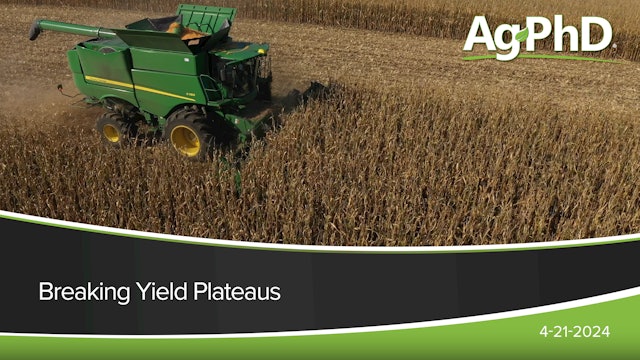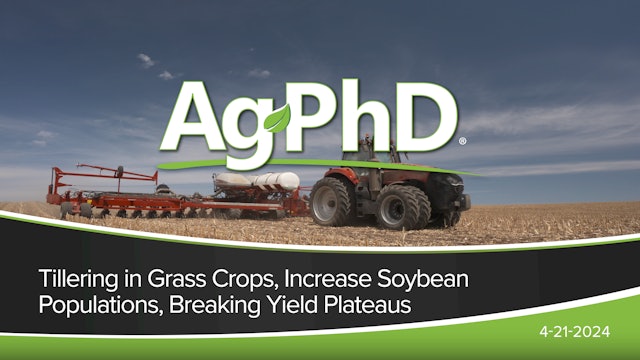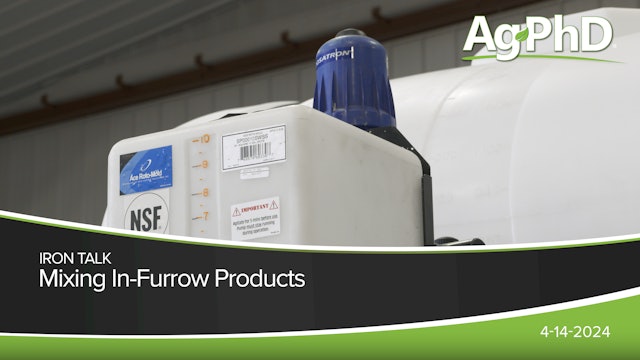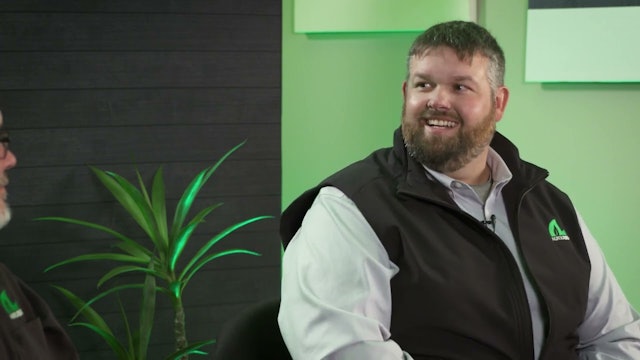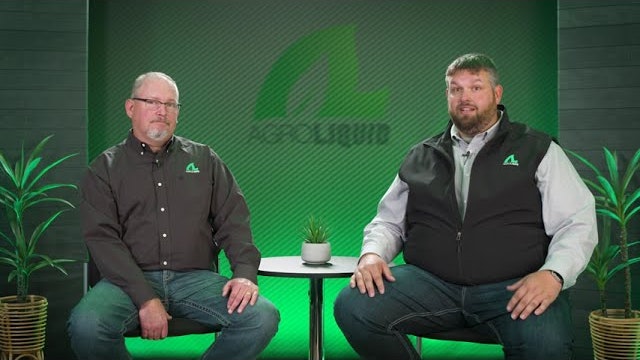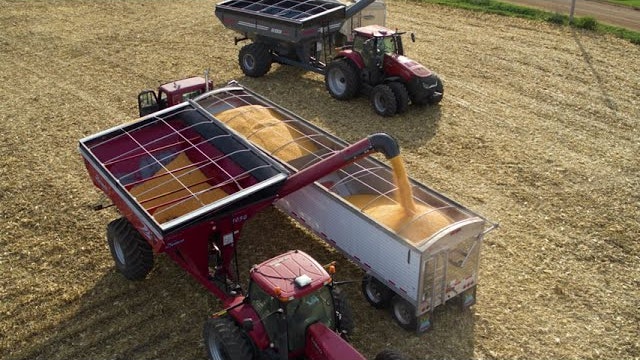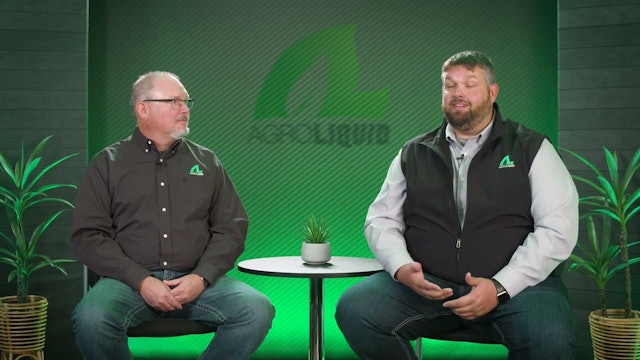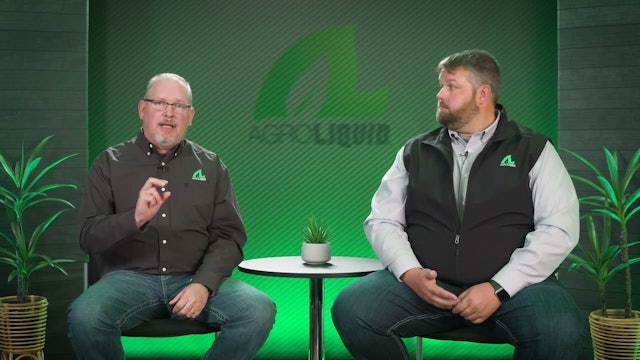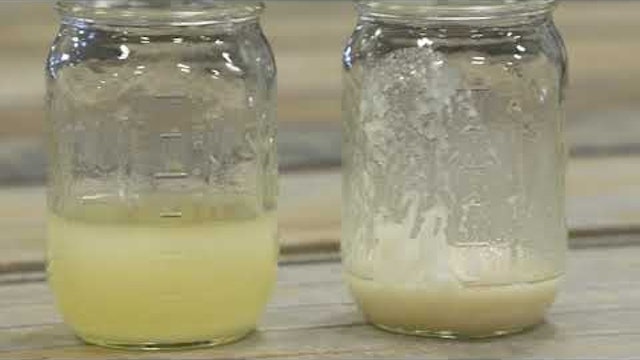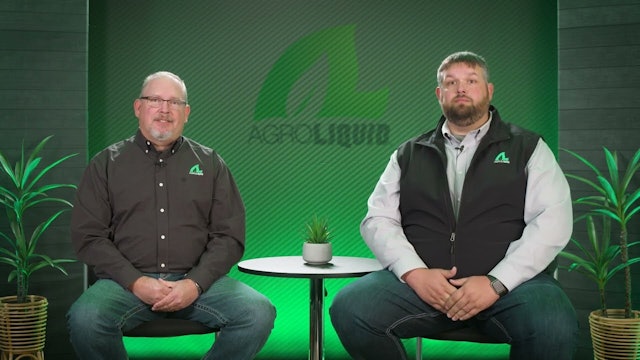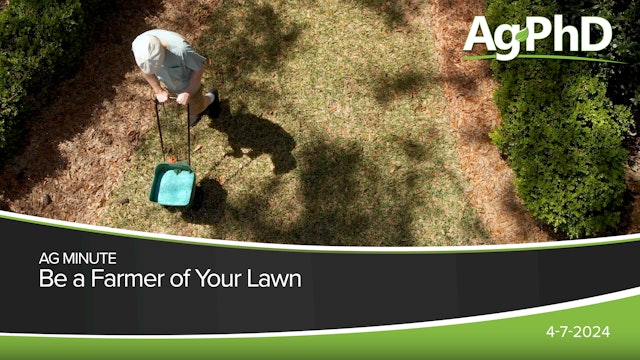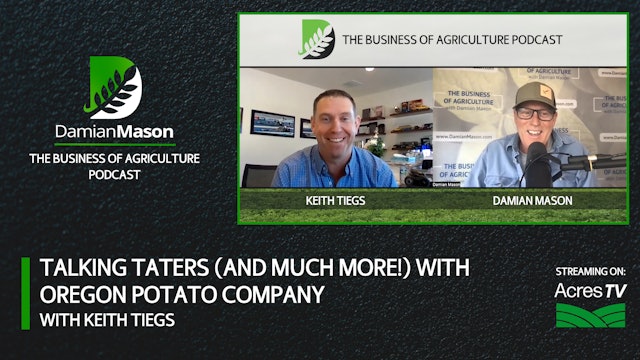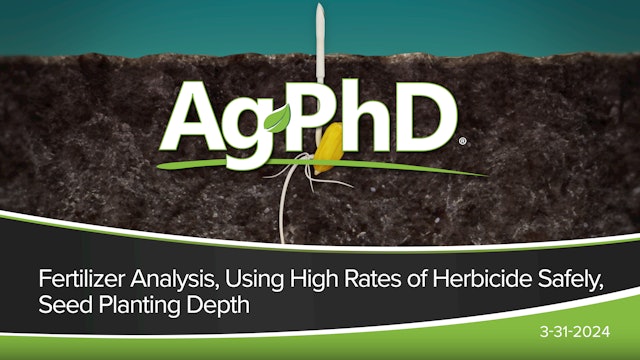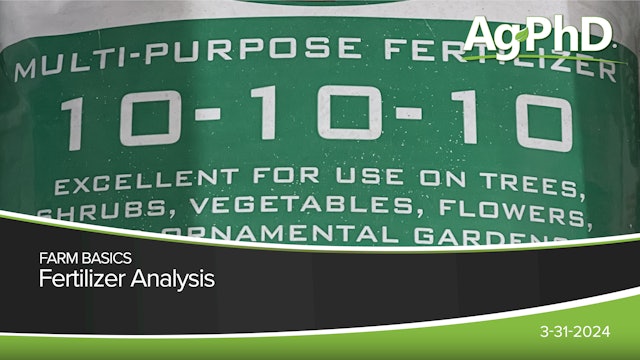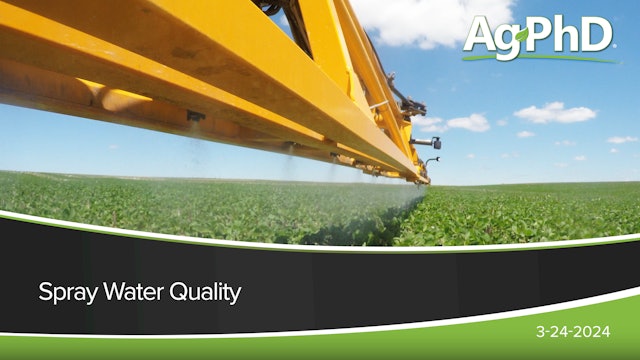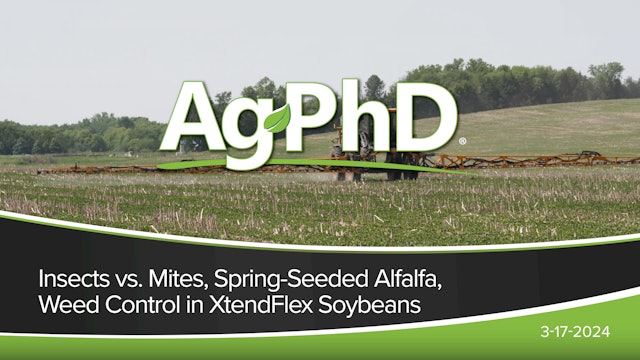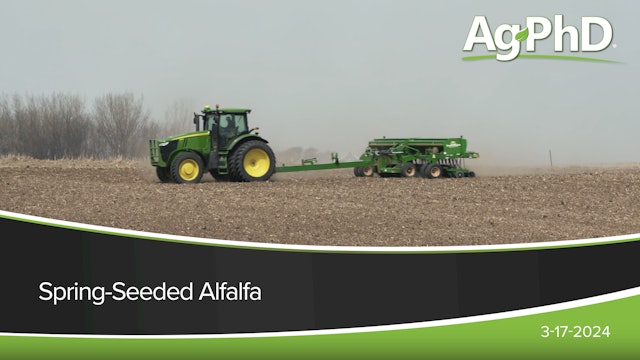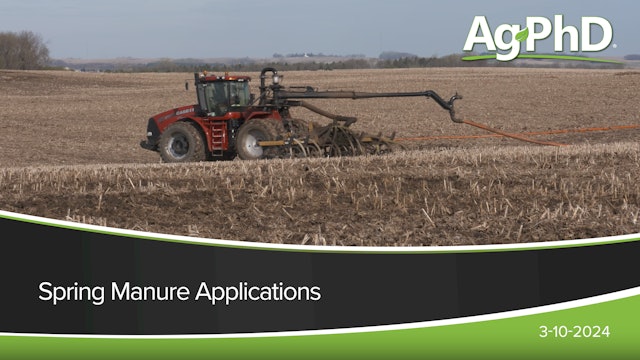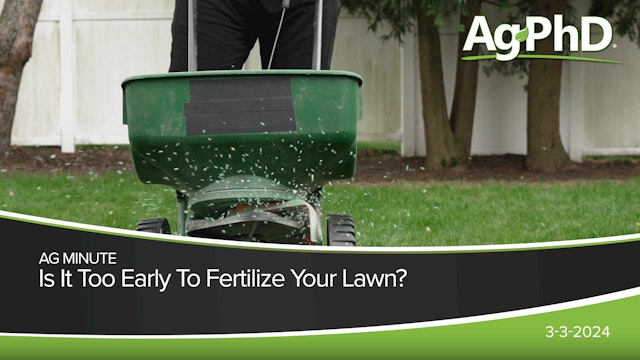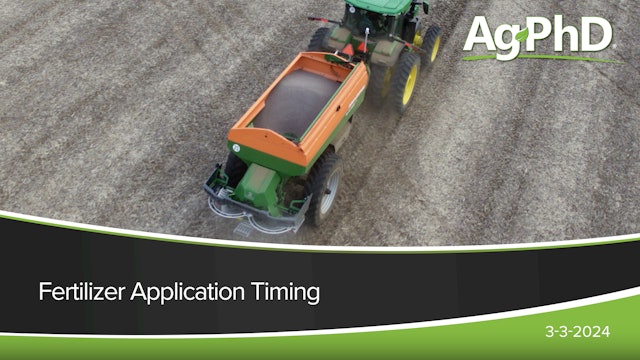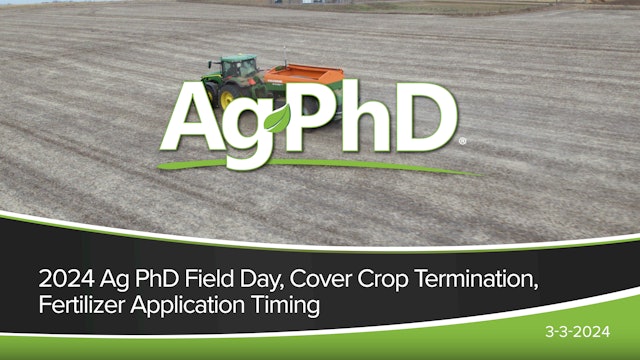Fertility
Crops don’t grow well without ample plant food, and fertility is the biggest recurring expense on any farm. Finding the best and most cost-effective ways to meet the fertility needs of your crops will help them thrive all season long and build better yields at harvest.
-
How to Maximize Soil Nutrients on Leased Land | AgroTech
Dive into the world of Agronomic Alchemy with AgroTech USA! In this enlightening podcast episode, our hosts James, Temples and Molly unravel the complexities of managing soil fertility on leased land. This discussion is a treasure trove of insights for farmers navigating the nuances of rented agr...
-
Breaking Yield Plateaus | Ag PhD
Hitting the yield wall? The Heftys give you the right tools to smash through it.
-
Tillering Grasses, Increase Soybean Population, Breaking Yield Plateaus | Ag PhD
The Heftys talk about a bushy phenomenon in crops, why you should plant soybeans the opposite way you do corn, and tricks to get higher yield numbers. The Weed of the Week is Amazon sprangletop, and we've got a greasy Iron Talk.
-
Margin Calls Are a Good Thing! | AgrisAcademy
A margin call against a hedge as a grower is the result of a rising market. When we look at the total risk of a farm this is actually a good thing. As farmers we often have ownership in the bin, in the field, and years of factors of production
-
Mixing In-Furrow Products | Ag PhD
Learn how a Dosatron can help you accurately mix your in-furrow products and avoid antagonism and other problems.
-
Defining Success | AgroLiquid B2B
Whether it’s yield, return on investment, or overall profit, every farmer has goals for their acres. Clearly defining those goals helps determine best crop nutrition management strategy. Join Brad and Ryan as they explore ways to define success on your farm.
-
Disaster Management | AgroLiquid B2B
Whether it’s mother nature or human error, crop damage happens on the farm. Many times, we can mitigate damage and salvage the crop. But sometimes it’s wise to walk away for the season. Join Ryan and Brad as they discuss how to evaluate these situations.
-
Evaluating Risk vs Reward | AgroLiquid B2B
You’ve probably heard the most expensive words in agriculture are “we’ve always done it this way.” Weighing the costs versus the rewards of an investment can help determine if the expenses – in both time and money – are justified.
Join Ryan and Brad as they dive into this important topic in this...
-
On-Farm Research | AgroLiquid B2B
With social media and other online resources, there are a lot of opportunities to learn about new techniques, products and practices that pay out for growers around the country. But will it pay on your farm? Doing your own research on a prospective change will help make informed decisions for you...
-
Tank Mixing | AgroLiquid B2B
A bad mix in your tank can result in a big mess with incompatible products, or it could cause antagonism between products or reduce efficiency in the field. Following proper tank mixing procedures can save you time and money in the long run.
-
Jar Testing | AgroLiquid B2B
Nearly every crop input label includes a recommendation to jar test before tank mixing the product. But is it worth the time to do the test, and what is the proper procedure for jar testing?
Join Ryan and Brad as they discuss the proper procedure for jar testing - and why it's important in the f...
-
Season Four Introduction | AgroLiquid B2B
We're excited to introduce Season Four of the Back 2 Basics video series. This season, Brad and Ryan are taking everything we've learned thus far in the series and bringing it together to make on-farm decisions. We hope you'll join us!
-
Be a Farmer of Your Lawn | Ag PhD
Agriculture expert Darren Hefty encourages you to think of the grass in your yard as a crop, and provides wisdom from the farm, to keep your summer weed-free.
-
Talking Taters (and Much More!) with Oregon Potato Company | Damian Mason
Frank Tiegs started farming in the Columbia basin region of Washington in 1975. Then he bought an apple packing facility. From there, the operation has expanded mightily to involve 140,000 acres of farming and 15 food processing facilities. Upon Frank’s recent passing, his son Keith re-joined the...
-
Fertilizer Analysis, Using High Rates of Herbicide Safely, Seed Planting Depth
Brian and Darren explain what the numbers mean on fertilizer packaging. They also discuss how to use high rates of herbicide without damaging your crop, and how do decide how deep to plant your seed.
-
Fertilizer Analysis | Ag PhD
Learn what the numbers mean on fertilizer bags.
-
Spray Water Quality | Ag PhD
The Hefty brothers take a deep dive into your spray tank water: what to put in and what to keep out.
-
Nutrient Know-How: Building the Plant's Immune System with Zinc | XtremeAg
Zinc is key for building a plant's defense mechanisms, germination and balancing phosphorus.
-
Insects vs. Mites, Spring-Seeded Alfalfa, Weed Control in XtendFlex Soybeans
Brian and Darren discuss mites and insects, and how growers use different products to control them. They also talk about getting great weed control and fertility when establishing alfalfa in the spring, and what products you could use in your XtendFlex soybean fields.
-
Spring-Seeded Alfalfa | Ag PhD
Darren and Brian discuss how to get great weed control and fertility when seeding alfalfa this spring.
-
Spring Manure Applications | Ag PhD
There is much more to consider when adding manure right before planting. The Hefty brothers inject their advice into this complicated situation.
-
Is It Too Early To Fertilize Your Lawn? | Ag PhD
Darren Hefty talks about when to fertilize your lawn to get the most out of what you apply.
-
Fertilizer Application Timing | Ag PhD
The Hefty brothers provide some advice on when to apply fertilizer so your crops get what they need - when they need.
-
2024 Ag PhD Field Day, Cover Crop Termination, Fertilizer Application Timing
Brian and Darren invite you to attend the 2024 Ag PhD Field Day. They also discuss the best ways to terminate your cover crops, as well has how to time your fertilizer applications so your plants receive the nutrients they need.




